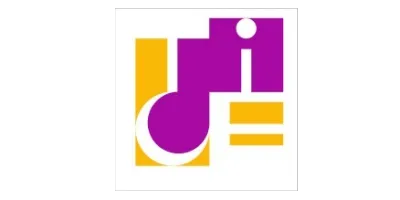
Centro Tice
Information
Tice Social Cooperative founded in 2006 by a university research fellow and three PhD students at the time working on evidence-based psycho-educational methodologies (University of Parma, former Department of Psychology). None of the founders, by the time the Cooperative was launched, had ever worked on the territory, neither they had a proper business/economic background. Shortly before the Cooperative was founded, its appointed President had spent 90 days in 3 learning centers in USA. A learning center embodies a private service model (Davies, Aurini, & Quirke, 2002; Pusser & Doane, 2001) deriving from the American tradition, which is similar to an after-school program but managed by qualified personnel (specialized psychologists and educationalists graduated with a master degree or a PhD) conducting highly individualized, evidence-based interventions (Calvani, 2012; 2013; Calvani & Vivanet, 2014). The proliferation of learning centers in the USA resulted to be strictly correlated to the positive effects observed in their young users (i.e. kids and young adolescents) (Durlak, Weissberg, & Pachan, 2010; Lauer et al., 2006). Learning centers are generally founded by practitioners from the academic sector (master or PhD graduates) and they are conceived as business services for which families pay a monthly fee for school-support programs, accessible 2 to 5 times a week.
The intuition of the founders of the target Cooperative consisted in transferring and adapting the learning center business model to the Italian educational culture. In particular, the Cooperative meant to offer a private paid service which envisaged no conventions with the national healthcare system, and which was conceived to be complementary, but not alternative, to national public services. Direct competitors on the "out of pocket" Italian market are self-employed practitioners, psychologists, educationalists and speech therapists: by the time the Cooperative was founded (i.e, 2006) the social cooperation sector in Italy was characterized by hybrid services managed by public- private collaborations, and the legal status of "cooperative" was not used to start (private) market activities (Piangerelli et al., 2017). Moreover, the only market strategy adopted since the cooperation sector was born is the direct market strategy (Nwankwo & Gbadmosi, 2011).
Since its establishment, the Cooperative resorted to a regular collaboration with the academic world, which according to the authors strongly influenced its "generative" and "innovation" capacity. The present study refers to "innovation capacity" in terms of social innovation awards granted to the Cooperative or to its staff throughout the years, thanks to its project activity (Evangelista, 2007; Da Rin & Malerba, 2002; Evangelista & Savona, 2002; Caroli, 2016), while its "generative capacity" has been considered in terms of replication of the model by university students trained by the organization (Venturi & Zandonai, 2016; Caroli, 2016). With the intent to provide an operational meaning to the mentioned definition of "regular collaboration with the academic world", and according to a parallel and opposite logic with respect to the third mission of the university, the analysis looks at the numbers of formal agreements signed between different Universities and the Cooperative and their significant outcomes. For instance, an internship agreement can generate 4 interns who can make a working experience inside Tice Cooperative. Turning an agreement between a university and a private organization into an observable outcome reflects the third sector tradition in measuring its accountability (Murray et al., 2009). The use of agreement contracts has become frequent in the public administration practice, and the recourse to unilateral or authoritative measures has been gradually abandoned: in Italy today a public university can stipulate framework contracts or a memorandum of understanding with other universities and their departments, or with other public or private societies to engage in coordinated activities in the fields of scientific research, didactic, and consultancy.
